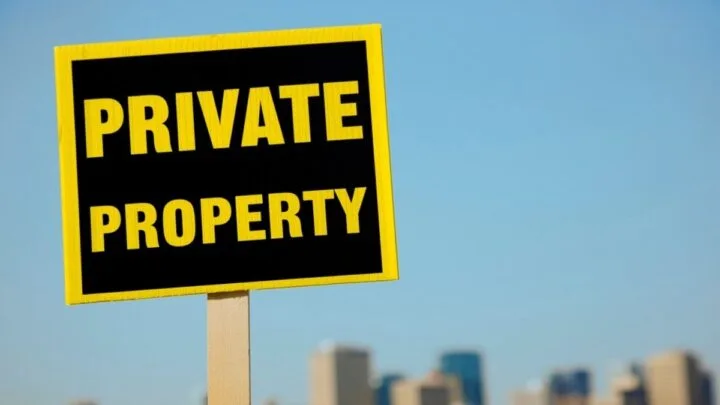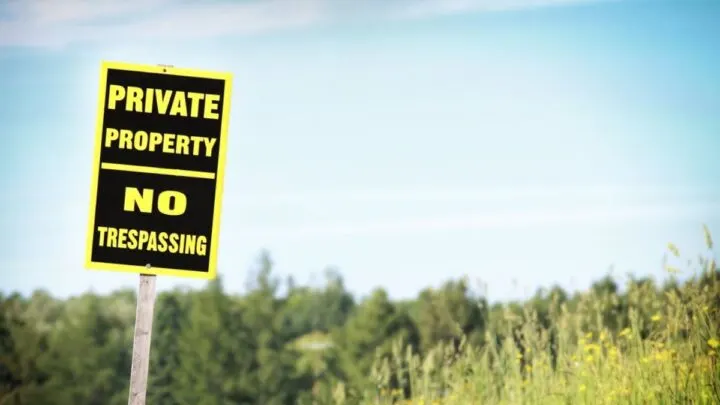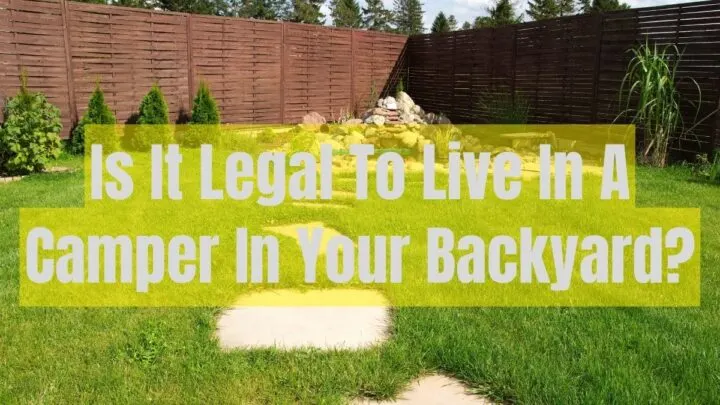Living in a house can be annoying at times. There are way too many surfaces to clean, and the water heater can blow at any time and cost thousands of dollars.
Plus, you just realized you have way too much stuff you don’t use. It feels like you bought a house so you could own more stuff!
After that realization, it can be tempting to buy a camper and live in the backyard. All you need to do is flush the toilets and run the water once a week to keep the plumbing in shape.
Or you can just rent it out on Airbnb and live in the backyard! But is it legal to live in a camper in your backyard?
There is no universal law in North America that says it is legal to live in a camper in your backyard. You can still check with the city, state, province, or county zoning laws, however.
Living in a camper can be freeing, but be careful. Don’t waste your money on a camper only to find out your zoning laws forbid you from living in your backyard.
Campers are not considered to be permanent residents in the US, Canada, and Mexico.
Laws in the United States Regarding Parking Campers
Many major cities, as well as states, have laws regarding four-wheel residences. There are some places that are friendly to those who want to live in campers, including:
- Oregon
- Texas
- Florida
- South Dakota
- Many counties in Colorado
- Nevada
- Washington
Here are the regions of the US that are not friendly to camper living:
- California
- Hawaii
- New York City
- Portland
- Washington DC
- Austin, Texas

Private Property
A camper is not considered a permanent place to live, even if it is on private property.
Now, you would think that purchasing a plot of land and parking a camper would be a perfectly viable option.
After all, the plot of land in your name so it is private and only accessible to you.
But there are actually many laws against this all around the United States. The plot of land needs to have a building on it.
Homes Part of an HOA
There’s no way that a HOA will allow someone to live in a camper in their backyard. HOAs are known for being overbearing and controlling.
The moment one of your neighbors who is also in the HOA finds out you are living in your camper, they might report you to the administration.
If you’re thinking of joining an HOA, then do not expect the HOA’s manager to allow a camper on your property.
Canadian Laws Regarding Living in Campers
Many parts of Canada allow Canadian homeowners to have an RV or a camper in their backyard or front side of the house.
Since the camper is a vehicle, you will not be able to reroute your mail directly to the camper.
But as long as there’s no suspicious activity, you don’t need to fear your neighbors reporting someone living in your camper.
Every province in Canada has its own set of local zoning laws and local ordinances that the homeowner must follow.
Most zoning laws require that the camper have access to a water source and a sewer to dump waste if the camper is going to stay in one area.
Ontario
There are a few laws in the province of Ontario that require a homeowner to get a permit for their camper.
However, there is no permit for permanent residency in the camper.
Ontario only allows permits for short-term occupancy. In most cases, these occupancy permits are used while someone is waiting for their house to be built or rebuilt.
Mexico Laws Regarding Living in Campers
Traveling throughout Mexico in a camper is one of the best ways to see the country.
You can travel from the amazing historical sites of the Aztecs down to the gorgeous beach side towns of Tulum, El Coyo, and Puerto Vallarta.
But if you find a beautiful and welcoming town to live in, can you just plant your camper in an empty spot and stay for a year or so?
Actually, if you have the right permits, you can! Here’s what you need to live and travel in a camper in Mexico
Tourist Permit
If you plan on returning to your home country after rooming around the beautiful Mexican countryside, you will need to register for a tourist permit when you first arrive in Mexico.
Never lose your tourist permit. Make copies and take multiple pictures of it.
180 Day or 10-Year TIP
The government of Mexico has no problem with tourists transporting RVs and campers across country lines.
But you will need to register your camper and fill out a form called a TIP, or Temporary Vehicle Importation Permit.
There are two types of permits a non-citizen will acquire: the standard TIP, which lasts 180 days or 6 months, and also some RVs and campers that are part of an automotive vehicle can also register for a 10-year TIP.
What You Need to Live In a Camper
You found a permanent residence that will allow you to park your camper in the backyard – great!
But before you whip out your grill and turn your favorite song on full blast, there are a few legal items you will need to take care of before your camper life can truly start.
Automotive Insurance or Camper/RV Insurance and Registration
Accidents and thefts can occur in a camper just like any other house or automobile.
A grease fire could damage the interior, or someone could steal your camper when you are out.
Do not expect your home or auto insurance to cover the cost of a burnt or stolen camper.
Most people in Canada, Mexico, and the United States have to add camper insurance onto their automotive insurance. You can also ask your home insurance if they have RV or camper insurance.
Most auto insurance companies do not require you to have a separate auto insurance in order to insure your RV/camper.

Can Someone Kick You Off Private Property If You Live in A Camper?
The only person that can kick you off of private property is the private property owner. If you own the property, then you have nothing to fear.
However, things get a little dicey if you are not the owner of the property your camper is parked on.
For example, you may have permission from the owner of the property, which you will always need.
But, if enough neighbors call the cops on you because you are loud and disruptive, the police could force you off of the property.
Also, your camper cannot be parked on the street. Cars and other vehicles on the street are not technically on anyone’s private property. You will be parked illegally.
To avoid being kicked off someone else’s private property:
- Park the camper or RV directly on the plot of land, not on the streets. Do not park in your friend’s apartment complex parking spot. You will be towed.
- If you are parked in the front yard of a private property, do not leave trash around, start fights, or play music too loud. The more visible you to the neighbor, the more invisible you need to act
Conclusion to Living In Your RV or Camper
Many parts of the United States, Canada, and Mexico allow people to live in their campers or RVs.
But they will need the correct paperwork and it will have to follow local city laws and ordinances. Make sure you check all of these before even attempting to convert your camper into a liveable space – you don’t want to get your home towed!


